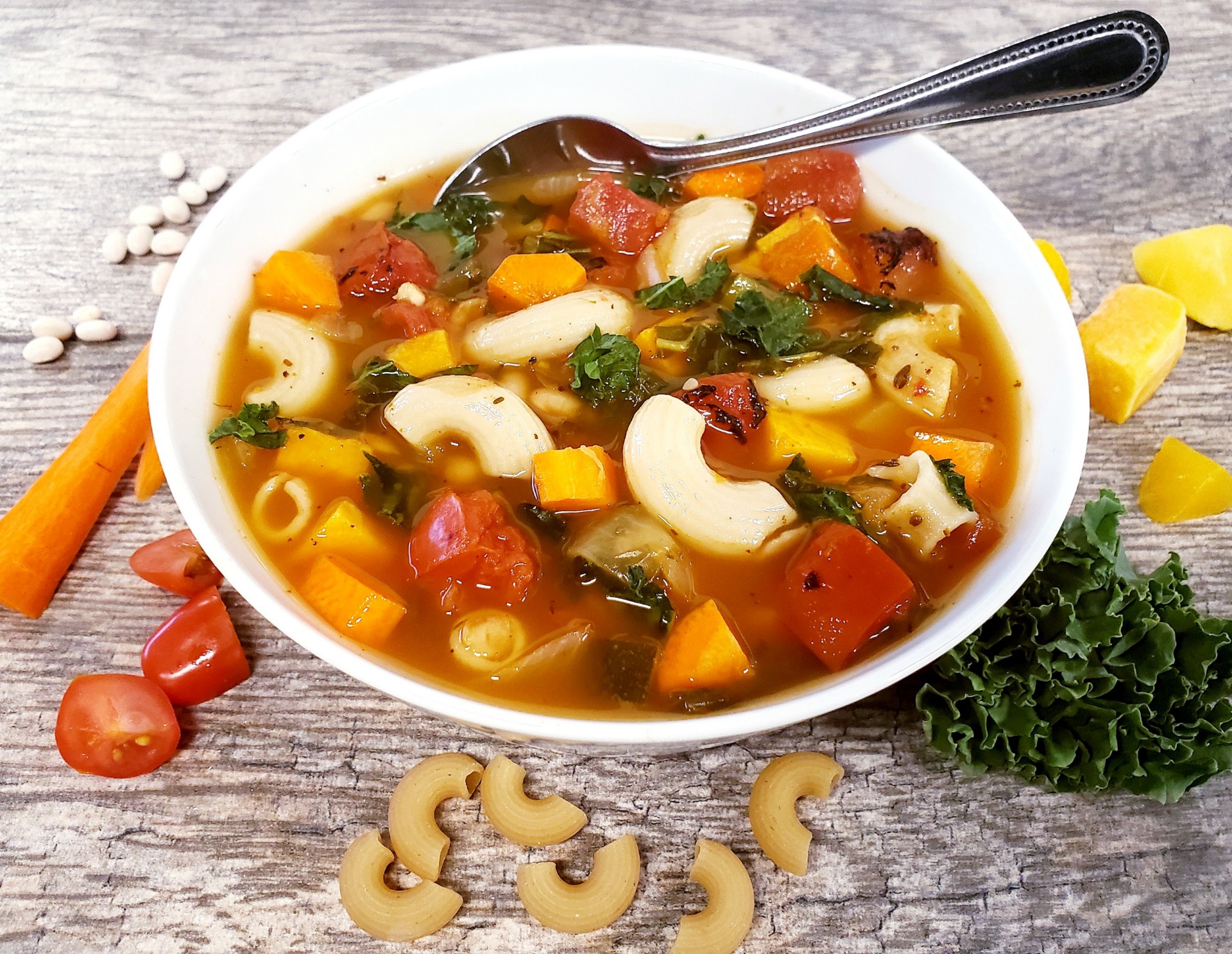
What better way to celebrate winter approaching than making and trying new soup recipes? Soup is a universal dish. It can be eaten at any time of the day, it can be made with many different ingredients, you can easily substitute ingredients, it can also be stored in the freezer to eat later! While heavy cream-based soups tend to be higher in fat and calories, there are many other types of soups that are beneficial to our health, and these are the ones we will focus on today!
Soups are a great way to prevent food waste by using whatever you have in your fridge or freezer. You can use veggies that are getting old, use the ends or cuttings of vegetables, and you can use fresh or frozen produce, whatever is easiest! Another addition you can add is the core of a vegetable to add more flavor to the broth. If you struggle with eating enough vegetables throughout the day or do not get enough of a variety, making soups can solve this. You can combine 5 or more of your favorite vegetable with broth and provide your body with a whole bowl of antioxidants, anti-inflammatory agents, vitamins, and minerals. While it may be a coincidence, in the fall and winter we see our immune systems get challenged by the flu or other colds. A go-to when we get sick is chicken noodle soup, but what if we have soup more regularly? Having soup on a regular basis, not just when we get sick, could help build our immune system to prevent a cold or the flu.
Soup is great for our bodies and also great for our busy schedules. Soup tends to be inexpensive and easy to make. By including more liquid and vegetables you can use smaller amounts of animal protein which tend to be more expensive. You can add legumes and grains to provide your body with essential amino acids. Add a slice of whole-grain bread on the side or a small salad to complete your meal.
Tips for making soups:
- Watch the sodium, try to use homemade broths. Bouillon cubes, canned broth, and even broth in a box is often high in sodium
- Add fresh garlic, onions, celery, or carrots for immune-boosting chemicals and flavor
- Double your recipe and freeze what you do not want to have for later
- Soups can last up to 2 months in the freezer
- Once your soup reaches boiling make sure to switch it to simmer and let it stay there. This will prevent your vegetables from getting mushy
- Cook in layers, don’t add everything at one time
- Add acid to brothy soups for extra flavor. Try lemon juice or vinegar
- Complete your bowl with a garnish










